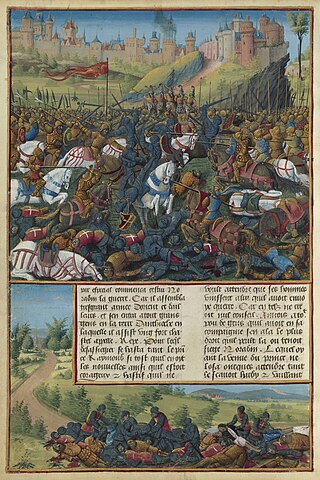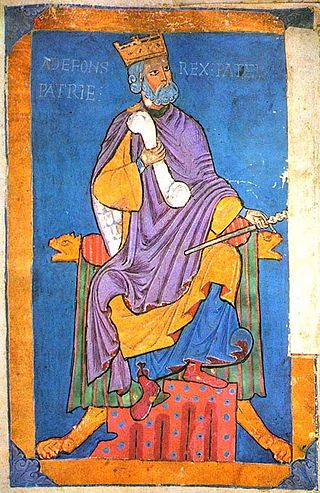
Year 1135 (MCXXXV) was a common year starting on Tuesday of the Julian calendar.
The 1090s was a decade of the Julian Calendar which began on January 1, 1090, and ended on December 31, 1099.
The 1070s was a decade of the Julian Calendar which began on January 1, 1070, and ended on December 31, 1079.
The 1100s was a decade of the Julian Calendar which began on January 1, 1100, and ended on December 31, 1109.
The 1050s was a decade of the Julian Calendar which began on January 1, 1050, and ended on December 31, 1059.

Year 1095 (MXCV) was a common year starting on Monday of the Julian calendar.
The 1120s was a decade of the Julian Calendar which began on January 1, 1120, and ended on December 31, 1129.
The 1130s was a decade of the Julian Calendar which began on January 1, 1130, and ended on December 31, 1139.
The 1110s was a decade of the Julian Calendar which began on January 1, 1110, and ended on December 31, 1119.
The 1080s was a decade of the Julian Calendar which began on January 1, 1080, and ended on December 31, 1089.

Year 1113 (MCXIII) was a common year starting on Wednesday of the Julian calendar.

Year 1115 (MCXV) was a common year starting on Friday of the Julian calendar.

Year 1116 (MCXVI) was a leap year starting on Saturday of the Julian calendar.
Year 1118 (MCXVIII) was a common year starting on Tuesday of the Julian calendar.

Year 1133 (MCXXXIII) was a common year starting on Sunday of the Julian calendar.

Year 1137 (MCXXXVII) was a common year starting on Friday of the Julian calendar.

Year 1149 (MCXLIX) was a common year starting on Saturday of the Julian calendar.

Year 1081 (MLXXXI) was a common year starting on Friday of the Julian calendar.

Year 1085 (MLXXXV) was a common year starting on Wednesday of the Julian calendar.

Year 1094 (MXCIV) was a common year starting on Sunday of the Julian calendar.











